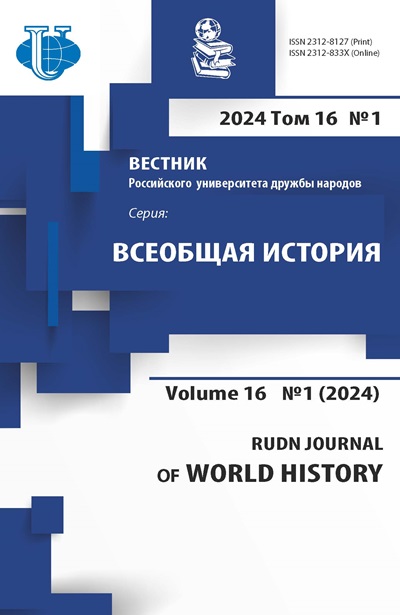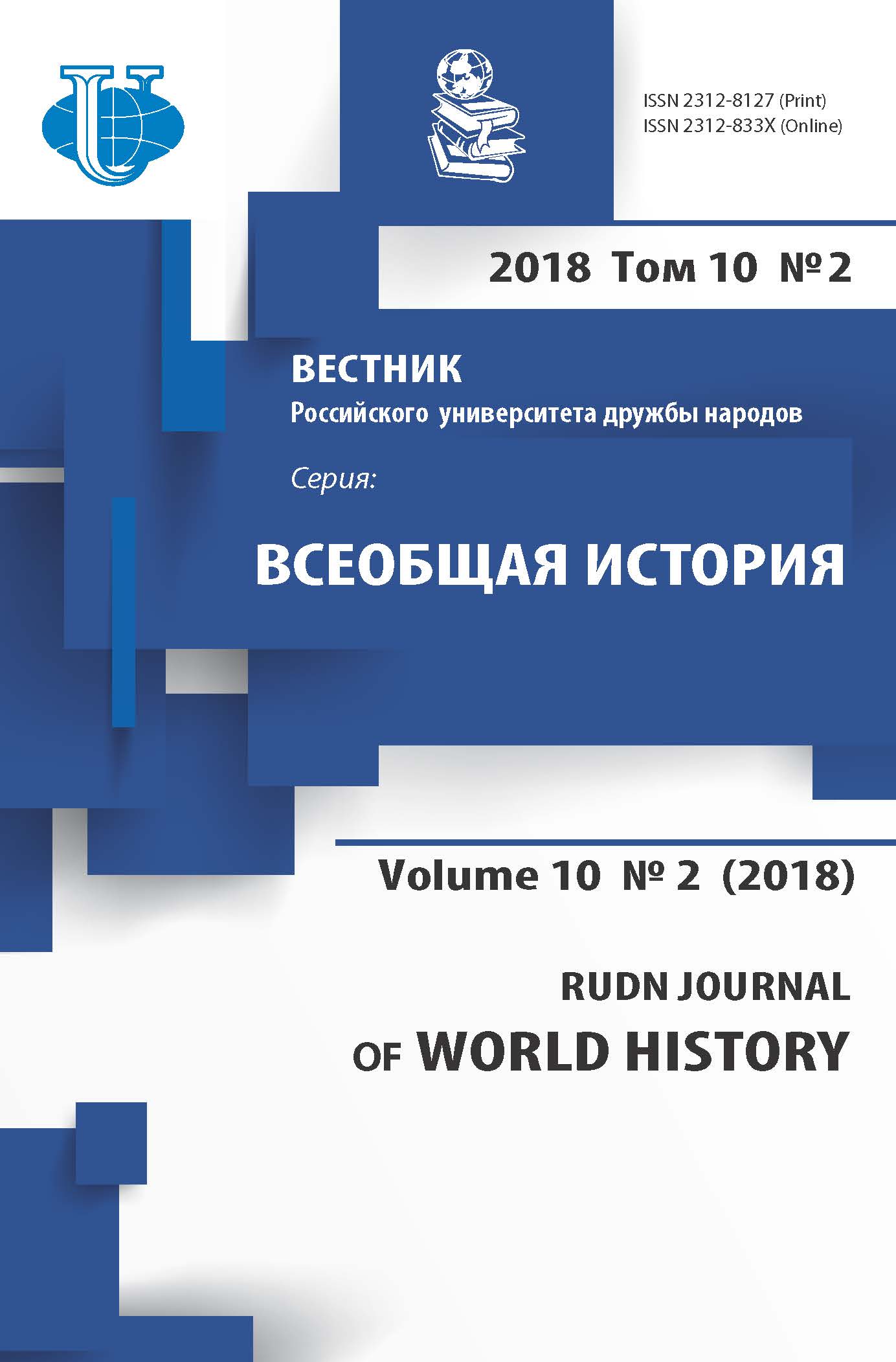THE HISTORICAL CORRELATIONS OF EGYPT’S FOREIGN POLICY
- Authors: Poida AA1
-
Affiliations:
- Peoples’ Friendship University of Russia (RUDN University)
- Issue: Vol 10, No 2 (2018)
- Pages: 192-200
- Section: Oriental Studies
- URL: https://journals.rudn.ru/world-history/article/view/19546
- DOI: https://doi.org/10.22363/2312-8127-2018-10-2-192-200
Cite item
Full Text
Abstract
The article is dedicated to the historical correlations, which had great influence on the process of formation and realization of Egypt’s foreign policy. The author considers the geographical position and historical characteristics as the historical correlations, which could not be changed by the will of man. The significant influence on Egypt’s foreign policy had its colonial past and bilateral relations with the leading states: Great Britain, France, the Soviet Union and the United States. It is stressed that since the moment of establishment the Suez Canal has become one of the key factors determining the position of Egypt on the international arena. An important role in Egypt’s foreign policy priorities is dedicated to the resource allocation of the Nile river. The author states that the great historical heritage and the advantageous geographical location allowed Egypt to take a leading position in international tourism sphere.
About the authors
A A Poida
Peoples’ Friendship University of Russia (RUDN University)
Author for correspondence.
Email: alexeypoyda@yandex.ru
postgraduate student of the Department of Theory and History of International Relations, Peoples’ Friendship University of Russia (RUDN University)
6 Mikluho-Maklay St., Moscow, 117198, RussiaReferences
- Ahmedov V.M. Nekotorye osobennosti formirovaniya i evolyutsii politicheskih system arabskih stran Blizhnego Vostoka // Insitut Blizhnego Vostoka URL: http://www.iimes. ru/?p=8468 (accessed: 13.03.2017).
- Belyakov V.V. Ukroshenie stroptivogo. Zolotoi ubilei perekrytiya Nila // Aziya i Afrika segodn’ya. 2014. № 9. P. 40–41.
- Bragin A.N. Efiopiya: velikaya damba vozrozhdeniya // Aziya i Afrika segodn’ya. 2012. № 1. P. 56–58.
- Vasil’ev A.M. Rossiya na Blizhnem i Srednem Vostoke: ot messianstva k pragmatizmu. M.: Nauka, 1993.
- Demchenko A.V. Vnutrennie factory formirovaniya vneshnei politiki arabskih gosudarstv // Vestnik MGIMO. 2010. № 1(10). P. 1–13.
- Isavi Sh. Egipet v seredine XX veka (ekonomicheskii obzor). M.: Izdatel’stvo inostrannoi literatury, 1958.
- Mamed-zade P.N. Egipet: turisticheskaya otrasl’ razvivaetsya uspeshno // Insitut Blizhnego Vostoka URL: http://www.iimes.ru/?p=7673 (accessed: 14.03.2017).
- Novikov N.V. Turism kak factor global’noi politiki // Rossiya v globalnoi politike. 2016. № 3. P. 208–213.
- Savicheva E. Turekulova G. The role of the Suez cannel in context of regional security in the Middle East // Vestnik RUDN: International Relations. 2014. № 2. P. 75–84.
- Yurchenko V.P. Egipet: problemy nacional’noi bezopasnosti (1952–2002) // Institut izucheniya Izrailya i Blizhnego Vostoka. M., 2003.
- Giorgio Musso. Troubled Waters: Egypt’s African Policy from the Islamists to the Military // Mediterranean Paper Series. Africa and the Mediterranean. Evolving Security Dynamics after the Arab Uprisings. February 2014. P. 28–29.
- Harry Verhoeven. Dams are Development: China, the Al-Ingaz Regime and the Political Economy of the Sudanese Nile // Sudan Looks East. China, India and the Politics of Asian Alternatives. New York, 2011. P. 121–123.













